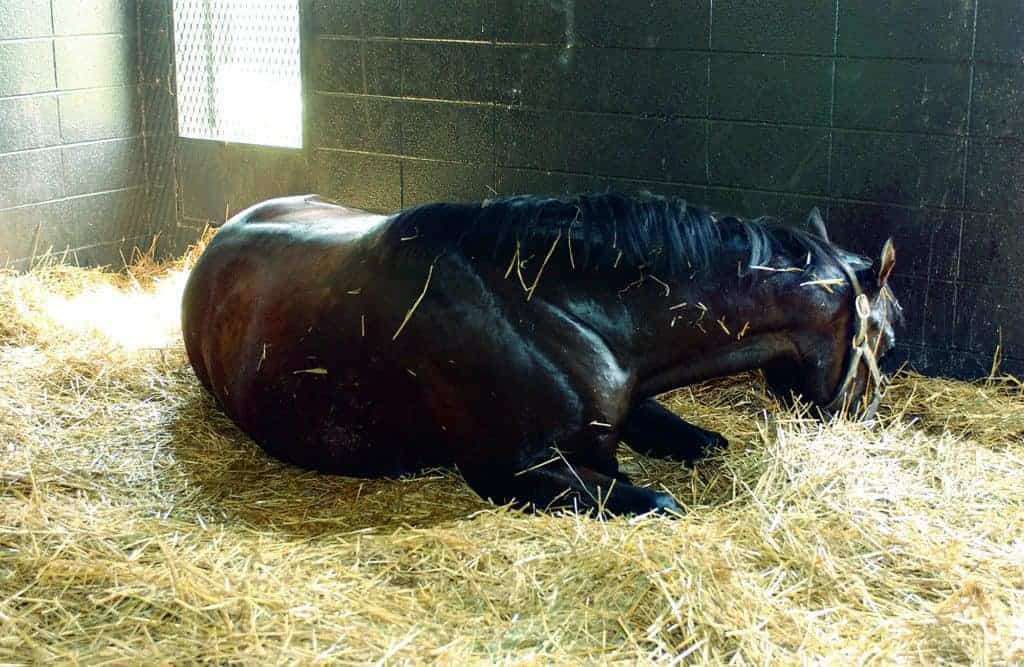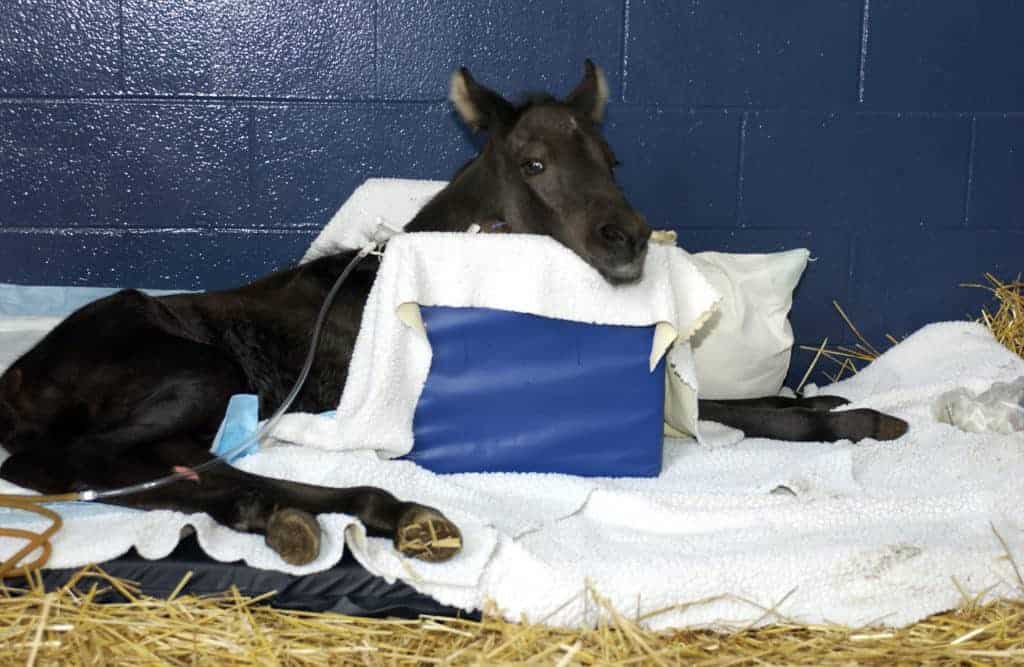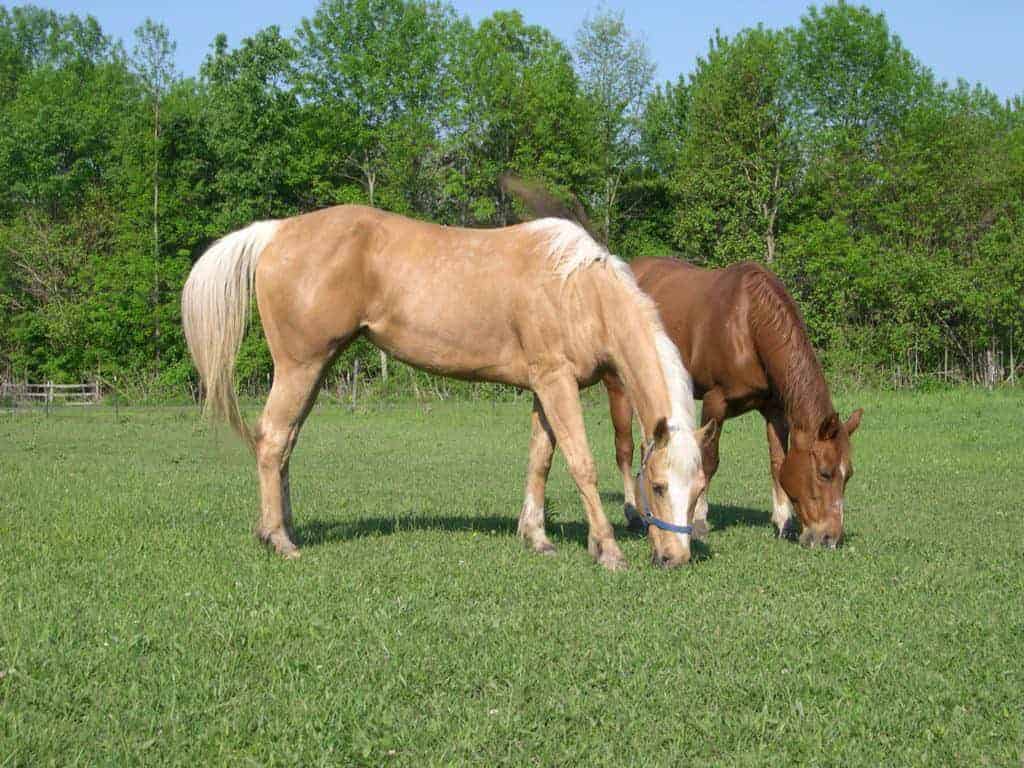
Monitoring and Preventing EPE on Endemic Farms (AAEP 2011)
Researchers are helping horse farms control and detect equine proliferative enteropathy (EPE).

Researchers are helping horse farms control and detect equine proliferative enteropathy (EPE).
Balancing the digestive system is key to maintaining equine health by improving nutrient absorption.

Certain parts of the horse’s digestive tract are associated with higher risks of developing colic.

Meconium impaction, ulcers, diarrhea, and other GI problems can arise in foals.

Could a healthy horse in one’s own backyard be a disease risk for other horses?
Prevention and monitoring strategies for equine proliferative enteropathy, a disease that affects weanlings
Equine proliferative enteropathy, a gastrointestinal disease of foals and weanlings that’s increasing in
Uncle Mo has a case of cholangiohepatitis, which, is a severe inflammation of the bile passages and adjacent
Owner Mike Repole said a decision on whether Uncle Mo, the current second favorite, will run in Saturday’s Kentucky Derby Presented by Yum! Brands will be made late today May 5, or early tomorrow. After the one-time Derby favorite exercised over the
Healthy blood sugar is a major factor in equine health. When glucose is not efficiently delivered to or utilized by the target cells, a horse’s ability to produce sustained metabolic energy is greatly diminished. This can result in a series of

Carbohydrates are important energy sources for horses, and they are required for digestive health.

When it comes to designing diets, knowing the basics of how horses digest food is half the battle. It’s important to consider each horse’s energy requirements before developing a feeding schedule.

The horse’s digestive system is large, complex, and functions like a factory, yet it is exceedingly delicate. Digestive tract dysfunction in the horse is an important concern for owners and veterinarians.

If the horse’s gastrointestinal (GI) tract were a highway, no self-respecting engineer would take credit for its design. Take a trip along the highway of the equine GI tract to learn more about how your horse digests his food.
Although equine dentists cannot have their patients lie down in a reclining chair for easy access to those hard-to-reach molars, the field has progressed greatly in the past 20 years. It is now possible to perform a root canal or a tooth extraction
Stay on top of the most recent Horse Health news with
"*" indicates required fields